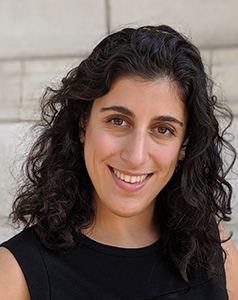
As a younger scholar in the fields of modern European history and Jewish Studies, I have been extraordinarily lucky in the number of more senior scholars who have taken the time to counsel me, not just on my academic scholarship, but also on professionalization and on the ins and outs of entering academia. And although I will speak largely in generalities, when writing about each quality of effective mentorship for this piece, I found myself thinking of particular individuals (to whom I am immeasurably grateful), who are true representatives of these qualities.
One of the first qualities of good mentorship is availability and interest in commenting on scholarly work. A good mentor takes active and genuine interest in their mentee’s work. The mentor has a vast knowledge of the state of the field and is able to suggest resources and background reading. (And when they know less about a particular area, they are humble enough to refer the mentee to someone else). An effective mentor also provides timely and effective feedback on academic writing. They suggest ways to sharpen certain arguments to make them more impactful and they suggest ways to soften certain language to avoid overreaching claims. But great scholarly insights are wasted if you are unable to convey them to others. A strong mentor helps their mentee realize the importance of getting their ideas recognized by other scholars and the public, as well as the benefits of receiving feedback from outside the mentor-mentee relationship. Academic conference presentations and early publications are extraordinarily important in this regard. One mentor, in particular, urged me to present at the AJS conference early on in my PhD career. At the time, the idea of presenting at an international conference was very daunting to me, but with the mentor’s encouragement, I crafted a conference abstract and sent it off. The abstract bore fruit and the resulting conference paper led to my first journal article. A good mentor also helps their mentee understand the less scholarly, more practical aspects of an academic career. Academia is a strange land, with its own customs, rules, expectations, and ways of doing things. While some of these are formally explained, many are not. A good mentor is available and willing to explain these somewhat intricate customs—how to construct a conference panel, how to prepare for an academic job search, and how to approach an academic press editor, for example.
The qualities described above come from my experiences with three different mentors and that is because it would be unrealistic to expect any one individual to be able to do everything at all times. Some of my mentors are particularly good at providing feedback on academic writing and some are excellent at professionalization skills. The most important advice I would give to other young career scholars is to seek out a whole constellation of mentors and then to thank them for their generosity and time.
Daniela R. P. Weiner is a PhD Candidate in the Department of History at the University of North Carolina at Chapel Hill and the Goodman Dissertation Fellow at the Carolina Center for Jewish Studies.